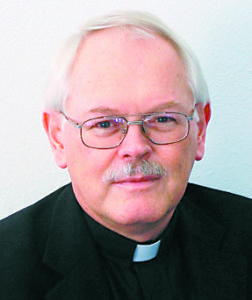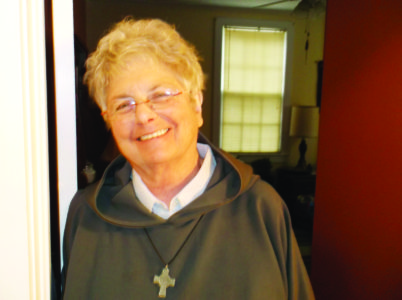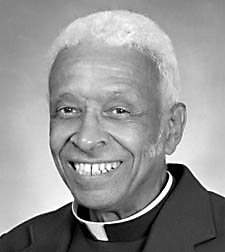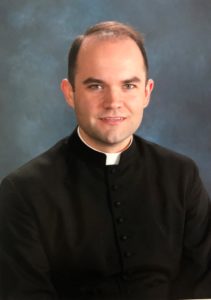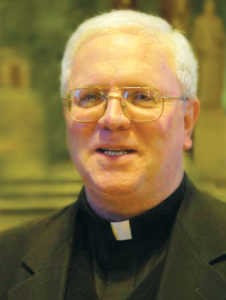
Melvin Arrington, Jr
GUEST COLUMN
By Melvin Arrington
We can learn much from what Mary says and does in the Gospels. Her act of faith and trust at the Annunciation, her beautiful Magnificat prayer, and her steadfast presence at the foot of the Cross are just some of the instances in which she demonstrates the meaning of holiness. Most importantly, in all things she points the way to her Son and compels us to turn our eyes toward Him, as when she instructs the servers at the wedding feast at Cana: “Do whatever He tells you” (John 2:5).
One of Mary’s traits that sometimes gets overlooked amidst her humility, charity, piety, devotion and other great virtues is her gentleness. I first discovered Mary’s gentle ways through the mild, non-abrasive manner of speech my wife would employ when telling me she needed help with household chores. It was a humbling and eye-opening experience when I finally became aware of the close parallels between her approach and Mary’s.
Many times in the past when my wife would say to me something like, “The dishwasher is full of clean dishes,” I would offer some inane response such as, “Oh, okay.” My interpretation was, “If you’re looking for your favorite iced tea glass and it’s not in the cabinet, it’s probably clean in the dishwasher.”
This pattern would show up in all kinds of situations. For example, she might say, “The grass is looking pretty tall in the front yard,” which meant: “Please mow the lawn before the grass gets any taller.” Or she might tell me, “The trash can is overflowing,” meaning that I should get up and take out the trash. Other times she would say, “I think the flag is down on the mailbox,” when she wanted me to go outside and bring in the mail. One final example is particularly embarrassing, now that I look back on it: “The basket in the laundry room is full of your clean clothes.” There’s really no excuse for not understanding that one.
Years went by before I learned how to translate what she was saying. I would hear her words without really listening for the subtext. What sounded like a mere statement of fact was actually a softened way of trying to get me to help out.
Somewhere deep inside it must have registered that she wanted me to empty the dishwasher, mow the lawn, takes out the trash, bring in the mail or put away my clean clothes because usually an hour or so later, I would get up and perform the task. For instance, I would go to the kitchen and, after searching in vain for a particular glass, remember to look in the dishwasher and, in the process, empty it, and put up all the clean dishes. Why couldn’t I have acted on this sooner?
One day, while reading the account of Jesus turning the water into wine at Cana (John 2:1-12), the true meaning of my wife’s soft and tender method of pointing out chores that needed to be done was suddenly revealed to me with great clarity. I had read this passage many times before and thought I had a solid understanding of it but, as the saying goes, each time you read Scripture you find meanings you didn’t see there before. Well, that was truly the case with me.
Verse 3 says, “When the wine ran short, the mother of Jesus said to Him, ‘They have no wine.’” Mary was aware of the wine shortage even before the headwaiter learned of it. When she told Jesus about it He immediately understood that she wanted Him to do something to save her friends and relatives from embarrassment. After informing her of the consequences of performing a miracle, He proceeded to do it. Needless to say, my response time to requests is somewhat slower.
Is taking an indirect approach and using non-confrontational language a form of “woman speak,” as opposed to more direct “man speak”? Most men probably respond best when given direct commands, albeit softened ones, such as “Please do this for me,” or “Could you do that for me?” Some of us are not very good at reading between the lines.
When she talked about dishes, laundry, and all those other chores, my wife was simply incorporating Mary’s indirect method and using “Mary speak.” In essence, she was acting like Mary, while I was just, well, being me. As a result, the real miracle occurred whenever I would actually get up and do something useful. A person listening with a servant’s heart would have understood instantly what she was asking.
Mary’s manner of speech in verse 3 is noteworthy because it tells us a lot about her gentleness. She can teach us a kinder, gentler lifestyle, and she can show us the way to happiness. Jesus is the Way, and Mary will point us to Him, if we only let her.
(Melvin Arrington is a Professor Emeritus of Modern Languages for the University of Mississippi and a member of Oxford St. John Parish.)


